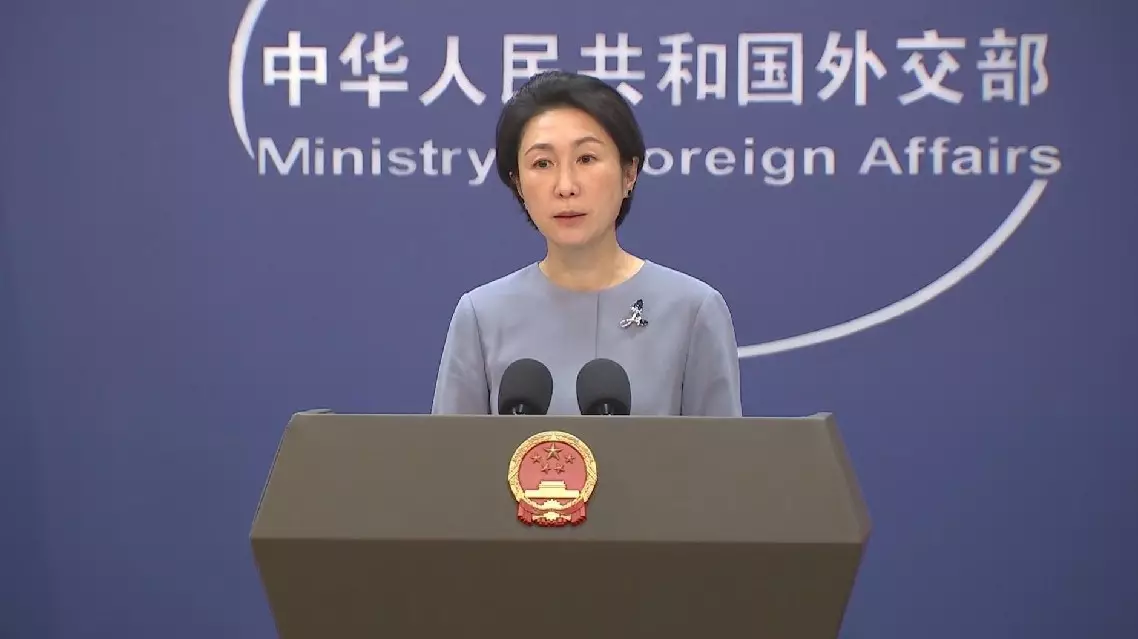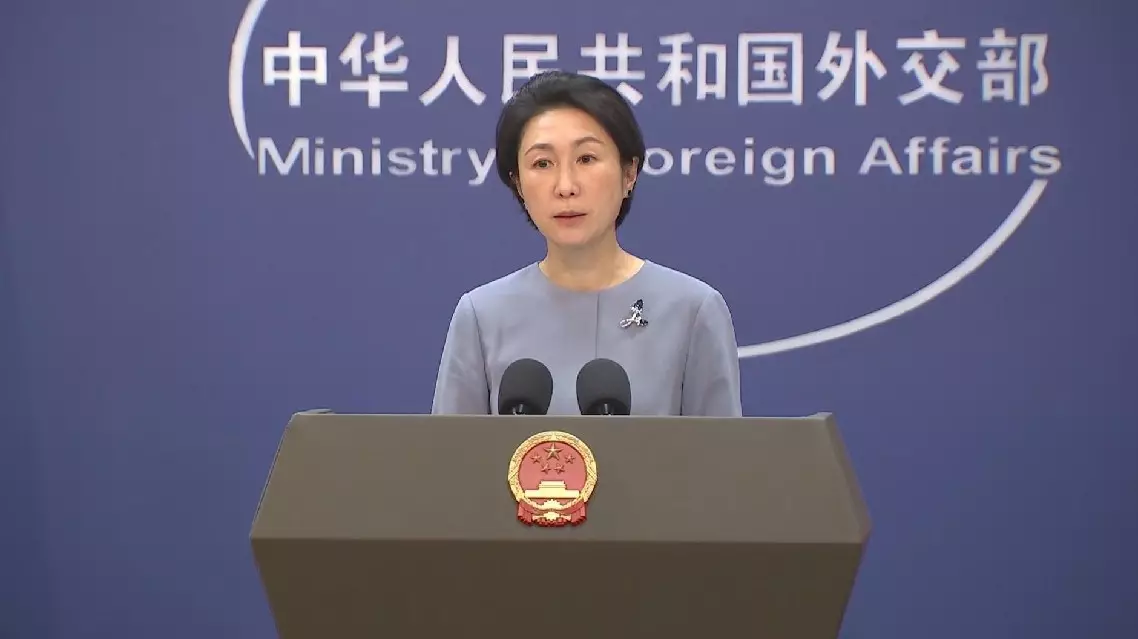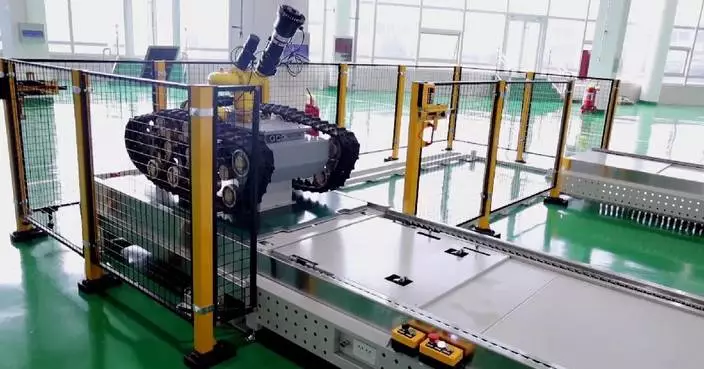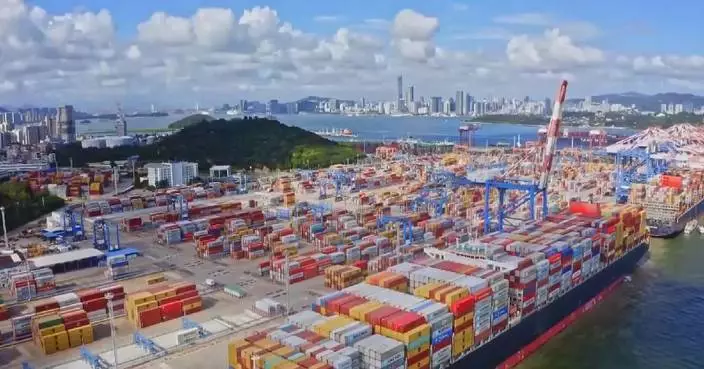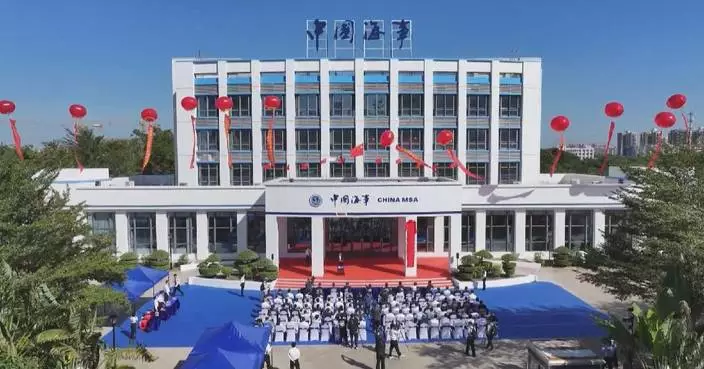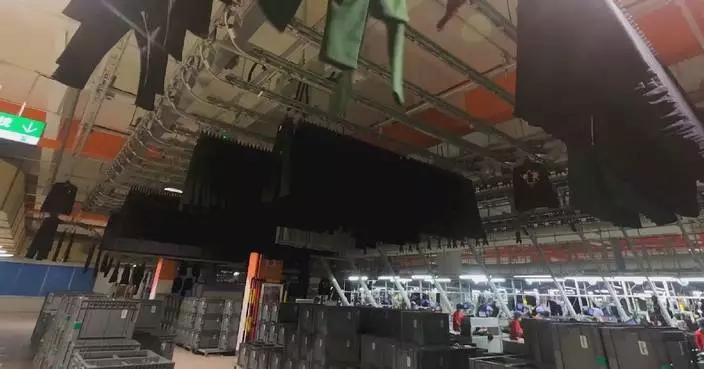A growing number of youths from China's Taiwan region have moved to the mainland to work and start businesses in recent years, motivated by amply business opportunities, vibrant markets and incentive policies offered there.
East China's Fujian, the mainland's closest province to Taiwan and with strong cultural ties to the island, has become a popular destination for young Taiwan people, who find it easy to adapt to life and work there.
"Fuzhou (capital of Fujian) and Taiwan have the same culture roots. I feel the living atmosphere and pace of life here are very comfortable, and I can quickly integrate into the local community here," said Chen, a vlogger from Taiwan living in Fuzhou City.
The Yangtze River Delta in eastern China and the Pearl River Delta in the south, two major economic zones in China, offer an ideal environment for people from Taiwan to advance their careers and develop businesses, with vibrant economies and global marketplaces.
"At present, the administrative efficiency in the mainland, especially for enterprises, is actually very fast, and it provides a lot of supportive policies," said Chou, a sports equipment dealer now living in Huai'an City, east China's Jiangsu Province.
"The current stage of development here emphasizes both rationality and pragmatism, reflecting a more mature professional environment," said Ma, a Taiwan designer settling in the mega city of Shenzhen in southern China.
Furthermore, Taiwan's young entrepreneurs seeking opportunities in the mainland are not confined to developed economic regions and may explore possibilities anywhere.
"Kunming has a very big advantage over other places, I would say in the world, in terms of growing flowers," said Chris, who runs his flower business in Kunming, known as the "City of Flowers" in southern China.
"I encourage Taiwan young people to come to the mainland to develop themselves in the catering industry. Many mainland restaurants have an advantage in terms of overall business mindset," said a restaurant owner surnamed Xuan in Shenyang City, northeast China's Liaoning Province.
Statistics show that businesses run by Taiwan youths in the Chinese mainland are evenly distributed, with a focus on sectors such as electronic information, biomedicine, the service industry, and rural revitalization.
The favorable measures they receive include start-up assistance, loan financing, business subsidies, rent relief, free consulting, and re-employment services.
Key policies that have supported these initiatives include the Economic Cooperation Framework Agreement (ECFA) signed in 2010, which lowered taxes on 539 products from Taiwan. Additional policies in 2018 and 2021 have promoted cross-strait business and cultural exchanges, as well as supported Taiwan enterprises to develop agricultural forestry fields in the mainland.
According to a survey by the Chinese National Federation of Industries based in Taiwan, by March 2023, despite a recent decline, some 35 percent of Taiwan businesspeople were optimistic about the mainland market; 60 percent will not change investment in the next three to five years; and 10 percent will increase investment.
Although at the start of 2024, the ECFA was partially stopped because of continuous provocations by separatists in Taiwan, the mainland has never ceased to find a way to support the Taiwan people in traveling, living, and working there.
According to the official figures, in the first half of this year, trips made by Taiwan visitors to the mainland exceeded 1.9 million, with a year-on-year growth rate of more than 100 percent.

More Taiwan youths keen on entrepreneurship in appealing mainland


